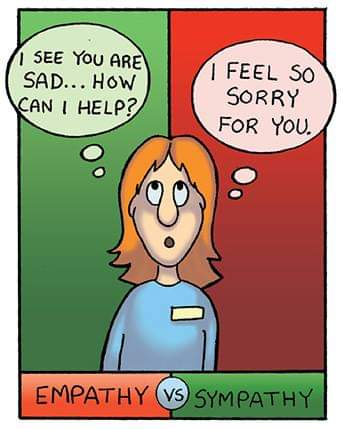“One of the most important things you can do on this earth is to let people know they are not alone.”
- Social phobias/social anxiety disorder - is marked by a fear of social situations in which a person might be judged or embarrassed.
- Agoraphobia - involves an irrational and extreme fear of being in places where escape is difficult. It may involve a fear of crowded places or even of leaving one's home.
- Specific phobias - it's the phobia of a specific object such as balloons, needles etc
- Gender - Women have a greater risk as compared to men.
- Age - Specific phobias occur by age 10, however, they may develop later on in life.
- Family history - It may be an inherited tendency or learned behaviour eg when a child repeatedly observes a phobic reaction to an object or situation.
- Temperament - Studies show that risk is higher in people who are more sensitive, more inhibited or more negative than the norm.
- Negative experiences - Experiencing a difficult, stressful, or traumatic event may trigger an onset of a phobia.
- Learning about negative experiences - Hearing about negative information or experiences
How does it feel like?
I felt trapped in my own body, and my thoughts were erratic due to heightened senses. I had insomnia for several days on end, The thought of opening the door to step out induced panic attacks, I cancelled hanging out with friends and family, and I had to wear earplugs at all times or earbuds and play specific genres of music to keep me calm, I was increasingly agitated in noisy environments at some point I could no longer use public transport and had to use cabs to move around etc. Generally, It was a lot and that's when I decided to take myself in for a mental assessment.
- My belief in God has given me peace that I can't describe.
- Great support networks from family, colleagues, supervisors and my friends- They keep my mind focused on what matters.
- My doctors for being great listeners, being accessible, personalizing care and for their patience.
- Understanding that it's a season and the storm will be managed or completely alleviated. There is great progress thus far.
- Having access to a lot of study materials has kept my mind calm on rough days as it's a great distraction.
So what type of care did I need in my season?
Now that the shoe is on the other foot I have quickly realized that most of the care we offer is from a sympathetic viewpoint instead of empathy and that needs to change. In my crisis priority needs were
- Readily accessible practitioners- I needed constant reassurance and guidance on the different medications I was on.
- Living with a caregiver - Some medications gave me antegrade amnesia, blurry vision syncope episodes, and dizziness. this made me a hazard to myself.
- Time off work- My body needed time to recover, rest and adjust to the treatment and this was facilitated.
- Financial planning strategies - Agoraphobia is an expensive disorder; during crisis episodes, one only moves around in private means, I needed to be in the company of a familiar person, I needed mouthguards, noise cancelling devices,I needed to keep my possessions in storage etc.
As a carer how do you support someone with a mental illness?
NB: The following advice is not recommended for all patient groups
(Better Health Channel) 2022 summarises the care into
- Talking openly and encouraging patients to be honest with their friends and family about how they are doing
- Reading about mental illnesses from reputable websites, such as government or health organisation websites or books by specialists
- Encouraging patients to take an active role in their mental health recovery, get out and see people and enjoy a healthy lifestyle
- Setting limits and letting them know what you can do for them and what you are not able to provide
- Finding out about any local or online training courses for mental health carers
- Joining a mental health support group to meet other people in a similar situation
- Take any talk of suicide or self-harm seriously and speak to a mental healthcare professional about it as soon as possible
- Putting plans in place as a backup in case you go on holiday, have to leave town or are not able to care for them for any reason
In conclusion remember, "Vulnerability sounds like truth and feels like courage. Truth and courage aren’t always comfortable, but they're never weakness." Brené Brown
References
Better Health Channel. (2022). Caring for someone with mental illness. https://www.betterhealth.vic.gov.au/health/servicesandsupport/caring-for-someone-with-mental-illness
Mayo Clinic. (2022). Specific Phobias. https://www.mayoclinic.org/diseases-conditions/specific- phobias/symptoms-causes/syc-20355156
McCabe E. R. (2022). Agoraphobia in adults: Epidemiology, pathogenesis, clinical manifestations, course, and diagnosis. https://www.uptodate.com/contents/agoraphobia-in-adults





